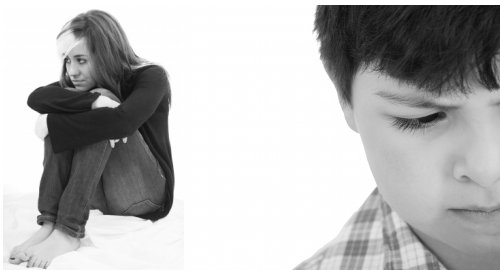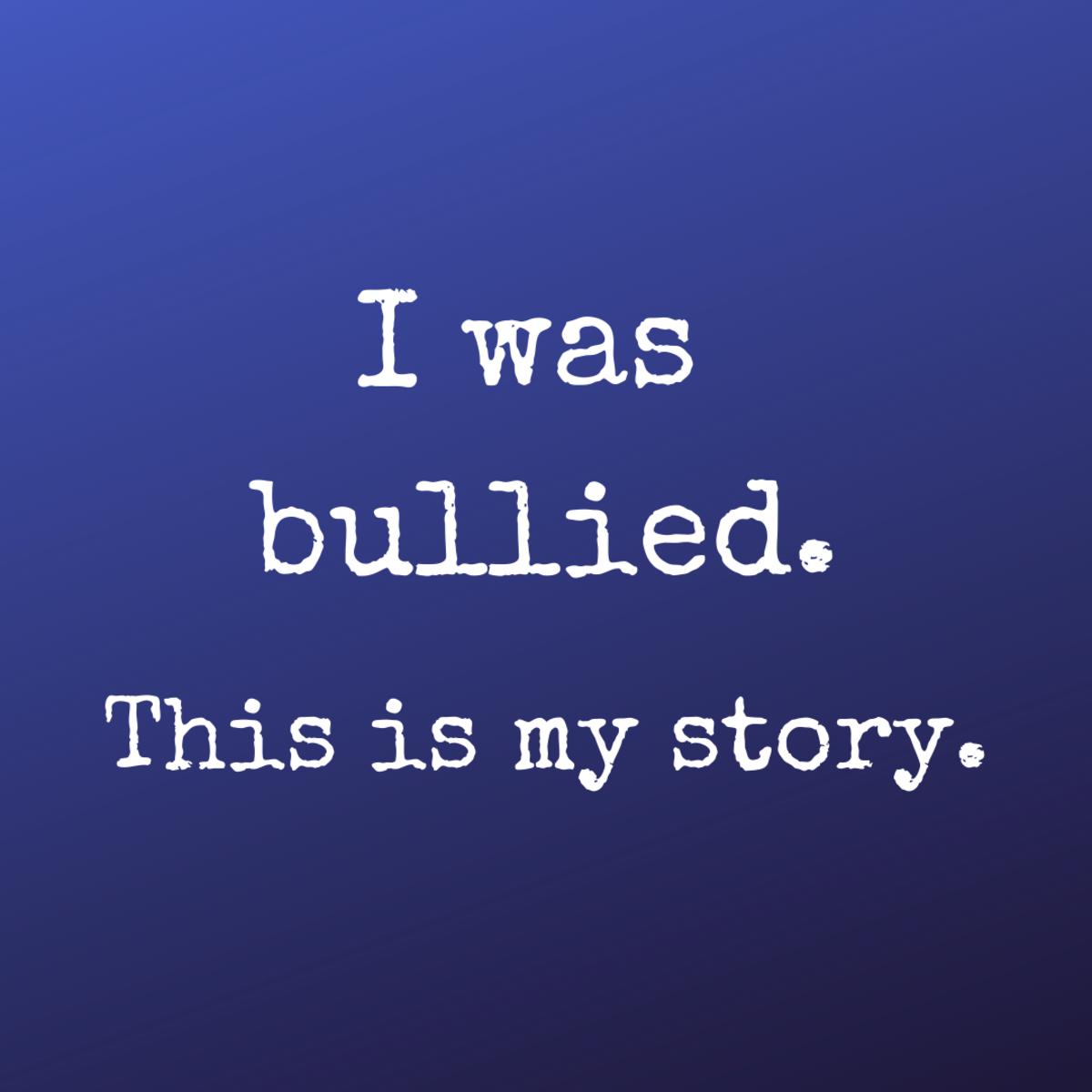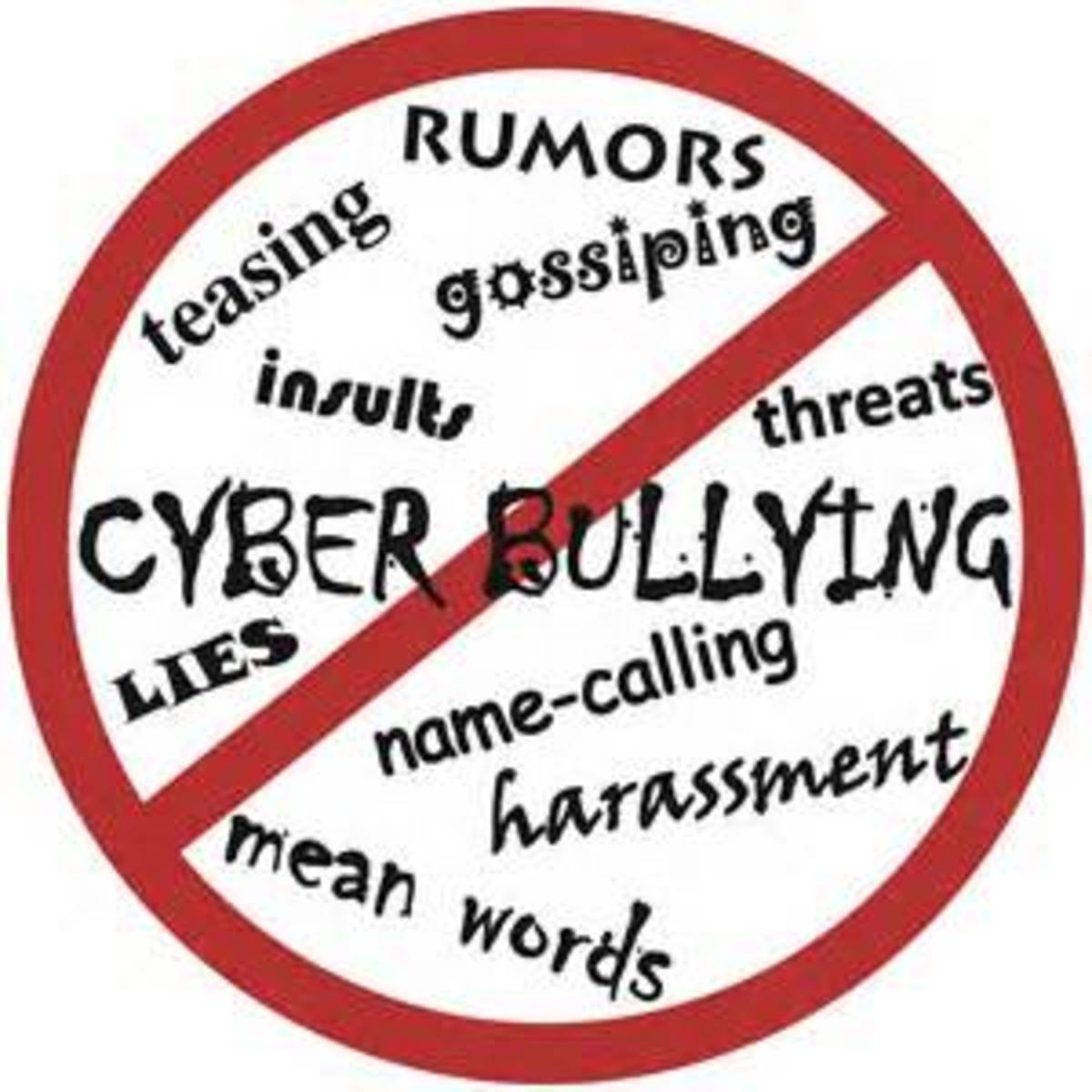Signs of bullying: Warning signs and symptoms of being bullied at school

What are the signs of bullying? From classic warning signs like bruises and depression to subtle ones including a drop in self-confidence and frequently losing money, here's a peak into a bullying victim's psyche. These generic signs and symptoms of bullying at school may also be stemming from peer pressure, relationships, breakups and other adolescent, preteen or teenage issues. However they should not be ignored for long.
1) Not wanting to go to school
One of the first signs of bullying is a child or teenager's refusal to go to school. This refusal can come in the form of feigning headaches, pain or other sickness.
A preteen or teen's first possible reaction to being bullied at school is likely to be displayed in frequent excuses to miss school because it is the easiest way to avoid confrontation with his or her bullies.
2) Lack of interest in school events and extracurricular activities
Participation in events at school can include being a part of the basketball team, choir, debate team or other extracurricular activities. These events and activities are a hotbed of social interaction and being bullied can make a student want to avoid being in the middle of students from other grades.
A child's sudden denial to take part in such activities to showcase his or her talents may be more than just a change of heart. It can be a result of peer pressure or bullying.
3) Coming back home with bruises
Frequent bruises or cuts are tell-tale signs of bullying. A child may pass them off as injuries from sports or an accident in one of the science labs, but there may be more to it.
Bruises and cuts should never be ignored unless he or she is in a contact sports team like football. These injuries may be a result of being shoved, pushed around or beaten up. Don't expect a bullying victim to admit straightaway that the injuries were caused by someone else.

4) Unexplainable fall in grades and lack of interest in studies
An unexplainable fall in grades could be stemming from a sudden lack of interest in studying. Being bullied at school can make a boy or girl feel repulsed from anything that is a reminder of the trauma of bullying. This feeling may have a direct and adverse effect on a child's desire to study, causing a sharp fall in grades.
5) Drastic fall in appetite
Eating extremely small portions, refusal to gobble down favorite dishes, being cranky on the dinner table and showing no liking towards food are signs that something is amiss.
Sudden fall in appetite and eating preferences could be a result of mental trauma and bullying could be a contributing factor. Constant worrying about the next bullying episode in school can make a child not feel like having anything to eat at all.
6) Suddenly wanting to wear scarves, long sleeve shirts
An unusual and untimely preference of wearing scarves, long sleeve shirts, sweaters and other clothes that cover-up may be a pretext of hiding scars and injury marks.
Unless these types of clothes are a regular fashion choice for a child, a sudden change in wearing clothes that cover-up more than usual can be a sign that he or she is trying to hide something.
7) Frequently losing money, breaking glasses, misplacing personal belongings
Glasses can be broken, books can be torn apart, money and personal belongings can be stolen – bullying at can come in various forms. Unusual and frequent misplacing or losing money and other personal belongings should be looked at as something more than just carelessness. Unusual and frequent misplacing or losing money and such other personal belongings should be looked at as something more than just carelessness.
A child may not feel comfortable in having an open conversation with parents about how a kid stole his iPod or how a girl took her favorite hair pin from her. Instead of saying the truth, he or she may say that the item was misplaced.
8) Wanting to be left alone
Being harassed and bullied can make children and adults want to be left alone. The trauma and stress can sometimes be too hard to handles and students may not want to show this suffering to others.
The suffering can result in them wanting to be secluded, alone and away from anyone who can spot that something is wrong.
9) Suddenly becoming quiet
Unknown to bullies and everyone around them, bullying victims go through psychological torture even during the moments when they are not being bullied. The memories and thoughts of being bullied are likely to send a child's psyche into a tizzy which may prompt him or her to suddenly become quiet.
No longer wanting to take part in conversations with friends or family can be a sign of bullying and the trauma associated with it.

10) Drop in self-confidence and self-esteem
Most bullying victims are left with injuries that are deeper than physical scars. These injuries are psychological and often result in plummeting levels of self-confidence and self-esteem.
If a child suddenly feels less confident of doing the things that he or she regularly does, the psychological pressure of traumatic experiences at school may be heaving down onto their confidence.
Typical examples are a girl not feeling pretty in her favorite pink skirt or a boy not feeling confident about giving a public speech, something he otherwise loves doing.
11) Garnering hate towards everyone else
Why me? Why didn't she take my side when I was being bullied? Why didn't my friends help me fight back against the bully? These are some questions that are often left unanswered in the minds of a bullying victim. This can cause a child or a teenager to develop hateful feelings towards everyone else.
Writing hateful messages, bad mouthing everyone including friends and a general hateful outlook towards every little thing in life can be a result of constantly being bullied by others.
12) Change in personality towards introversion
A passive sign of bullying is a shift in a child's personality from being a bubbly extrovert to being a shy introvert. Personalities of individuals change, morph and adapt to situations they find themselves in.
Some of the top business minds and most famous celebrities of the 21st century are introverts. However if a child who otherwise is overtly social seems to have a sudden paradigm shift in his or her personality towards introversion, it could be driven by bullying at school.
13) Deleting social media profile and presence
The 21st century definition of bullying has expanded beyond school playgrounds and hallways. Cyber bullying is the virtual counterpart of the real thing but the psychological and emotional effect is no less.
Facebook, Twitter, Myspace, Tumblr, Pinterest, Instagram and other social media and networking platforms mimic a teenager's social life in many ways. A sudden disappearance from all these virtual communities can be an attempt to shield one's own self from further bullying and humiliation by classmates.
14) Overall unhappiness, depression and mood swings
Adolescence, preteen or teenage are the forming years of a child's mental balance. The psychological trauma of bullying can be very evident in the form of depression, unhappiness and rampant mood swings.
Getting irritated easily, always looking gloomy, frowning at the slightest of discomfort, getting annoyed at seemingly silly things, inability to handle someone's sense of humor, constant expressions of sadness or unhappiness are some signs that a child could be facing bulling.








